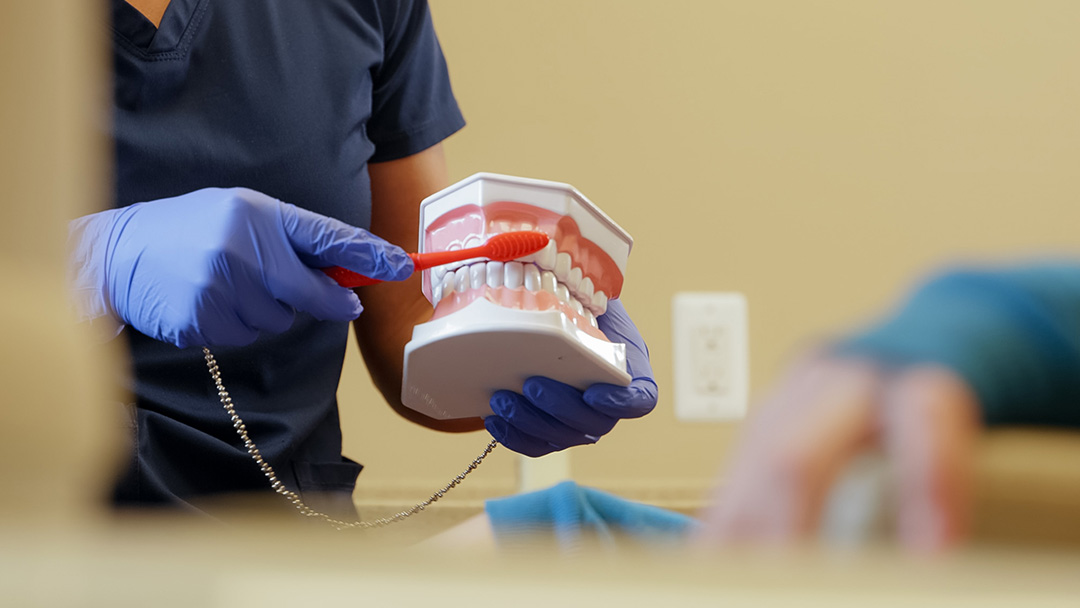Undergoing a root canal procedure is a new experience for many which means the recovery process can also feel unfamiliar and foreign. Luckily, our Southgate, MI, dentists come prepared with post treatment instructions to guide patients through the time in which their teeth are healing. Nothing is too complex but if you’re ever unsure of what to do after a dental procedure like this, we’re only a call away!
In the meantime, here’s an overview of how to navigate daily oral care following root canal therapy and when you should seek extra assistance from our dentists.
Managing Tenderness and Soreness
After you leave our Southgate dental office, it’s common to have the treated tooth be a bit sensitive and the gums surrounding the area feel tender. Keeping your mouth open while our doctors perform the root canal can also cause some soreness in your jaw. This is all normal and you can expect it to take less than a week for your tooth and gum tissue to heal.
Some tips to help manage the discomfort include:
- Over-the-Counter Pain Meds: Options like ibuprofen or acetaminophen can help alleviate pain and reduce inflammation. Be sure to follow the dosage instructions provided by our dentist or on the medication packaging and only take what you need.
- Cold Compress: Applying a cold compress to the outside of your cheek near the treated area can help reduce swelling and numb the pain.
- Soft Diet: Stick to soft foods that require minimal chewing. Avoid hard, crunchy, or sticky foods that could irritate and cause additional tooth pain.
Oral Hygiene After a Root Canal
Keeping up with your daily oral hygiene routine is essential after a root canal if you want to prevent infection and promote healing. We also encourage you to come in for your regularly scheduled teeth cleanings every 6 months so dental plaque or tartar left behind can be removed. Let your root canal serve as a wake-up call and use it as motivation to not slack on cleaning!
Maintain the cleanliness and health of your mouth by:
- Brushing Gently: Use a soft-bristled toothbrush and be careful around the treated area to avoid irritation.
- Flossing: Continue to floss daily as it helps remove plaque and food particles, but be gentle around the treated tooth.
- Swishing With Mouthwash: Rinse with an antiseptic mouthwash to reduce bacteria and keep your mouth clean. Avoid using mouthwash containing alcohol, as it can be too harsh for the healing tissue.
- Avoiding Tobacco and Alcohol: Both can slow down the healing process and increase the risk of infection.
- Not Chewing on Your Treated Tooth: This is especially important if you’re waiting for a porcelain crown to be placed.
Normal Symptoms vs. When to Seek Help
Sure, some discomfort after root canal treatment is expected but there are instances where what’s experienced can cross a line. Understanding the difference between normal post procedure symptoms and signs that point to something being wrong is crucial. Review what’s listed below so you have a general idea of what may or may not be cause for concern.
- Normal Symptoms:
-
- Mild to moderate pain or discomfort around the treated tooth.
- Swelling or tenderness in the jaw or gums.
- Sensitivity to pressure or mild throbbing.
- When to Seek Help:
-
- Severe or worsening pain that doesn’t improve with over-the-counter pain relievers.
- Significant swelling that doesn’t reduce after a few days.
- Persistent or severe pain when biting or chewing.
- Any signs of infection, such as fever, foul-smelling discharge, or a bitter taste in the mouth.
- If the temporary filling or crown falls out, or if there’s a noticeable change in the tooth’s appearance.
Restore Your Smile Back to Normal
By following instructions given to you by our root canal dentists in Southgate, MI, you can ensure a smooth recovery and maintain your oral health for years to come. However, if you experience any unusual symptoms or have concerns, don’t hesitate to call Northline Dental today at (734) 284-8088 to request an appointment.


